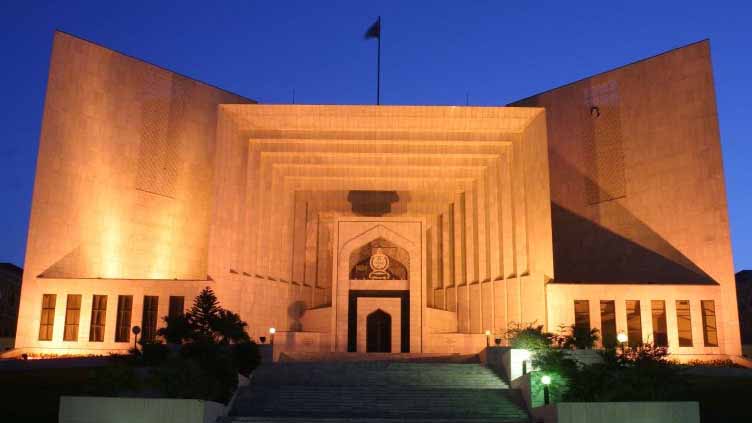Four phases of judge’s transfer call for judicial approval at each stage: SSC

On Monday the Supreme Court noted that four stages of a judge’s transfer process required court approval.
Constitutional problems concerning judicial independence, seniority, and constitutional articles were brought up during the hearing of a constitutional lawsuit on the movement of judges.
Five-member constitutional panel led by Justice Muhammad Ali Mazhar conducted the hearing.
Lawyer Faisal Siddiqi argued; Attorney General Mansoor Usman Awan will be arguing on Tuesday.
Faisal Siddiqi maintained that Article 175 of the Constitution established the Islamabad High Court and that legislation on judicial nominations exclusively applies to the provinces.
Under this perspective, he said, it was not feasible to send judges to the Islamabad High Court. Should a judge be moved, the transfer cannot be regarded as permanent and upon return there is no need to retake the oath.
By now Justice Muhammad Ali Mazhar asked whether Article 200 had become useless when Article 175A was enforced.
Faisal Siddiqi answered that the present transfer mechanism compromised the authority of the Judicial Commission, therefore contradicting the constitutional values.
Justice Shakeel Ahmed said many conflicts might be settled if there was a consistent seniority list of judges all throughout the nation.
Faisal Siddiqi concurred, saying that a unified seniority list will clearly show the consequences of judge moves to everybody.
Siddiqi further said that seniority is developed over decades and that changing this list overnight using executive authority is a totalitarian action.
Justice Muhammad Ali Mazhar explained the four-stage transfer process: the chief justice of the relevant high court, the chief justice of the receiving high court, the judge being moved, and the top justice of Pakistan. Should one of these parties object, the transfer cannot take place.
He said that things would be different if all of this belonged to the executive. But here, the approval of four judicial forums was essential.
Faisal Siddiqi told the court that the current law had been manipulated in bad faith and that the judiciary had been kept in the dark on the sensitive matter of seniority.
Subsequently, the Supreme Court adjourned the hearing until Tuesday after the completion of Faisal Siddiqi’s arguments.